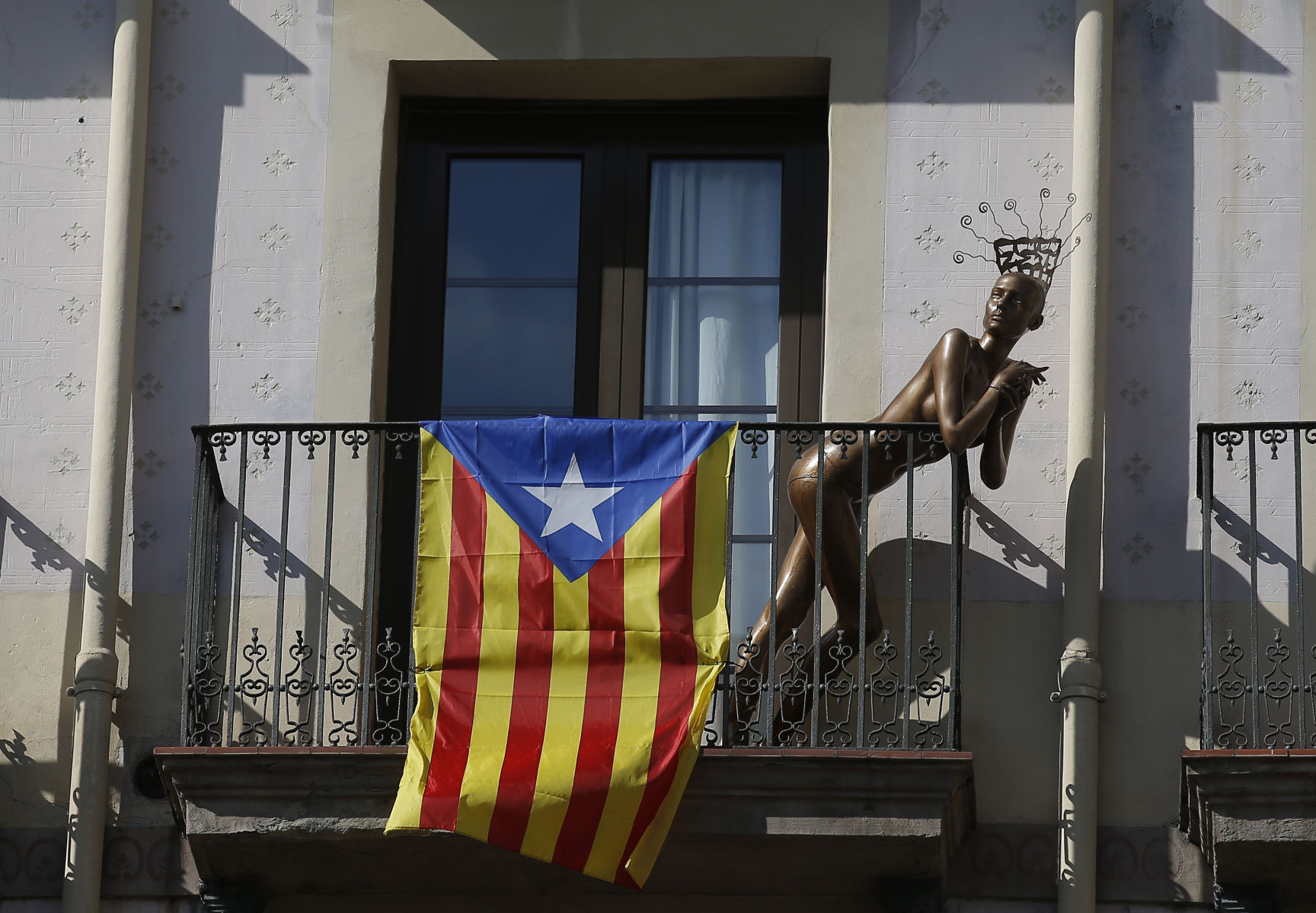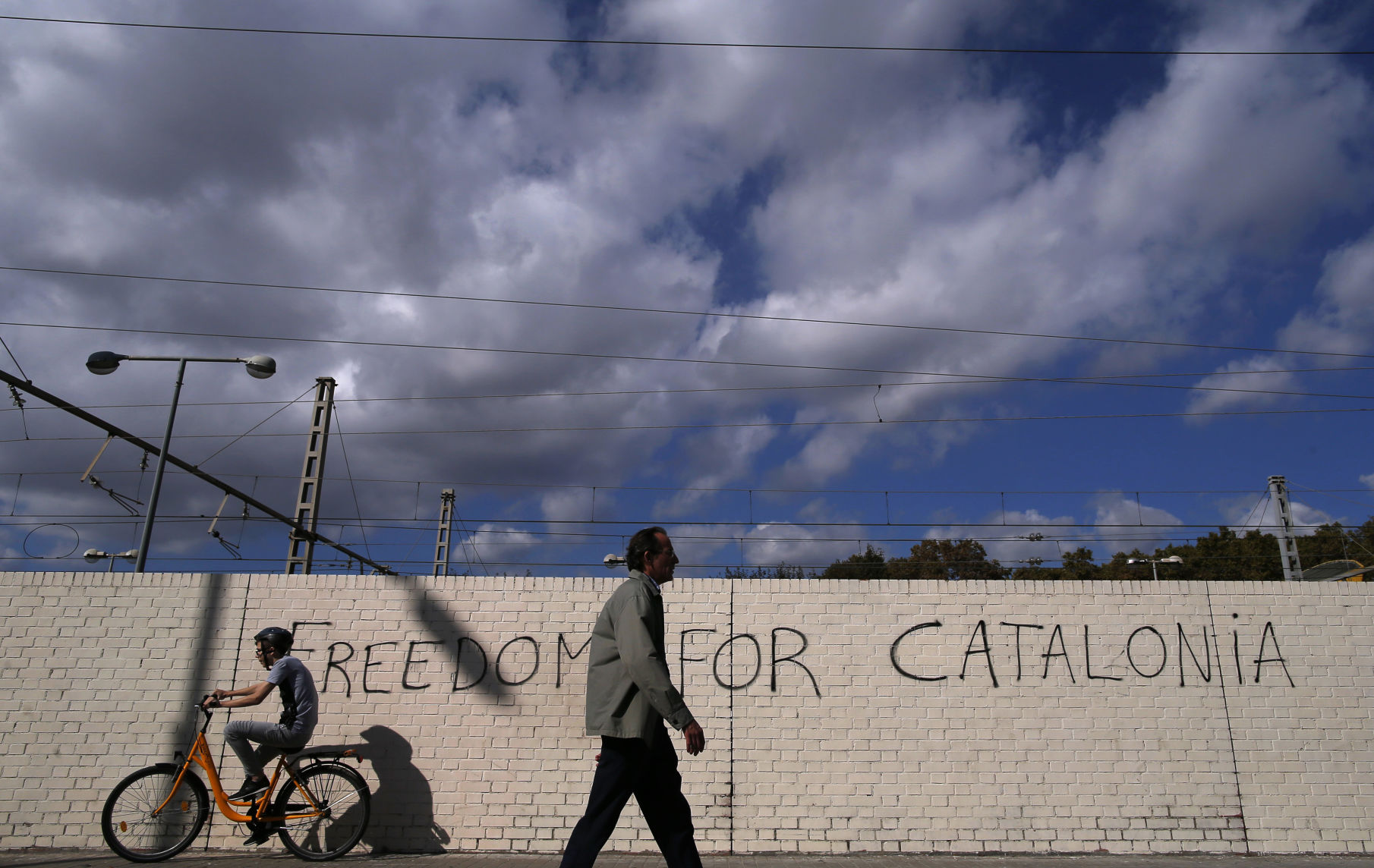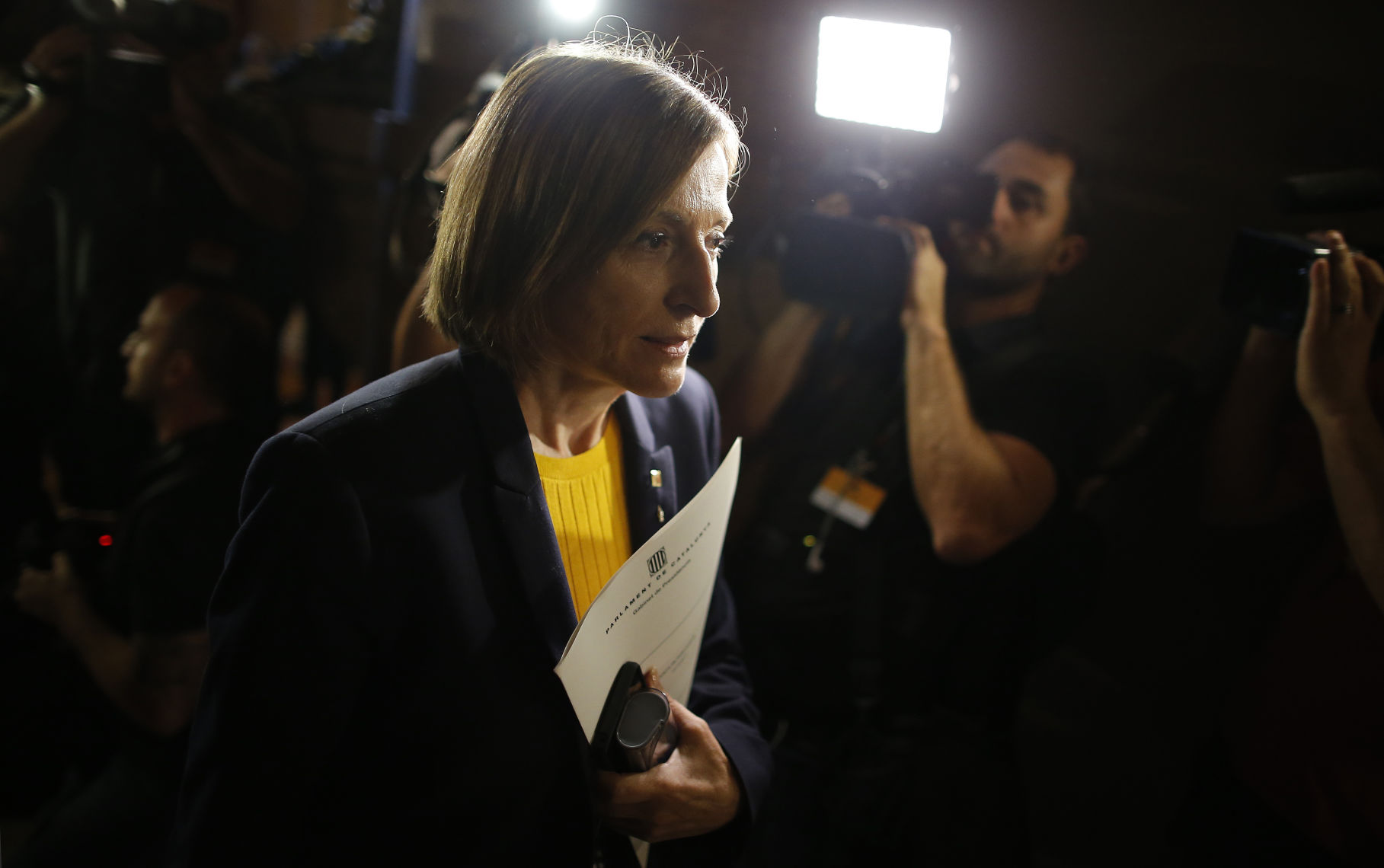BARCELONA, Spain (AP) — Catalonia’s regional parliament plans to hold a debate this week on the Spanish prime minister’s plan to take direct control of the region — a session many fear could lead to a vote declaring Catalan independence.
The president of Catalonia, Carles Puigdemont, asked regional lawmakers to debate options for responding to the takeover moves announced Saturday by Prime Minister Mariano Rajoy. Parliament’s governing body set the debate for Thursday.
Rajoy wants to trigger a section of the Spain Constitution that would allow the central government to step in to run Catalonia. Firing all Catalan top officials and calling an early regional election are among the steps the prime minister wants to take with the constitutional authority.
The actions are Rajoy’s response to the regional government claiming it had a mandate to secede from Spain based on an Oct. 1 independence referendum Spain’s top court had put on hold.
In Madrid, Spain’s political parties designated 27 senators to study the government’s request to activate the Constitution’s Article 155. The group includes 15 members of Rajoy’s ruling Popular Party, which means the request’s approval is all but certain.
The commission is expected to invite Puigdemont to defend his case before a Senate vote Friday on the prime minister’s plans.
The unprecedented standoff between authorities in Barcelona, the capital of Catalonia, and the national government in Madrid could result in an extended period of social and economic turmoil for the region, a Catalan business group warned Monday.
The Barcelona-based Circulo de Economia said Catalonia may be heading toward “a prolonged and dynamic period when there is a lack of control, legal uncertainty and public unrest.”
The effects could be “dramatic” in terms of the local economy and jobs, the business group said. It said early elections in Catalonia could help resolve the deadlock.
Deputy Spanish Prime Minister Soraya Saenz de Santamaria said Rajoy might name someone to take control of overseeing the central government ministries that would be involved in running regional offices in Catalonia.
Speaking on Onda Cero radio, Saenz de Santamaria said once the Senate gives the green light, the Catalan government will be out office immediately. She said Puigdemont “will no longer be paid, he will not have a presidential signature” and will not be able to make decisions.
In Barcelona, Lluis Corominas, spokesman for Catalan’s governing Together for Yes coalition — accused Spain of acting “like a dictatorship” and called the use of Article 155 “an act of institutional violence without precedent.”
“In this parliament, we won’t be able to debate or vote any initiative without Madrid’s permission,” the lawmaker said. “That is not democracy.”
The far-left separatist CUP party called for “mass civil disobedience,” describing Rajoy’s move as “the greatest aggression against the civil, individual and collective rights of the Catalan people” since the dictatorship of Gen. Francisco Franco, who died in 1975.
Pro-independence students, meanwhile, called for a strike in Catalan universities on Thursday to urge authorities to push ahead with a declaration of independence and defend the region’s institutions.
———
Elena Becatoros in Barcelona and Ciaran Giles in Madrid contributed.






